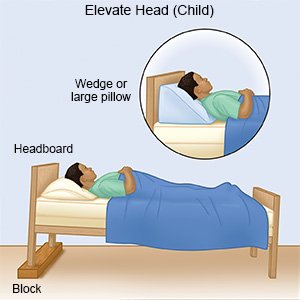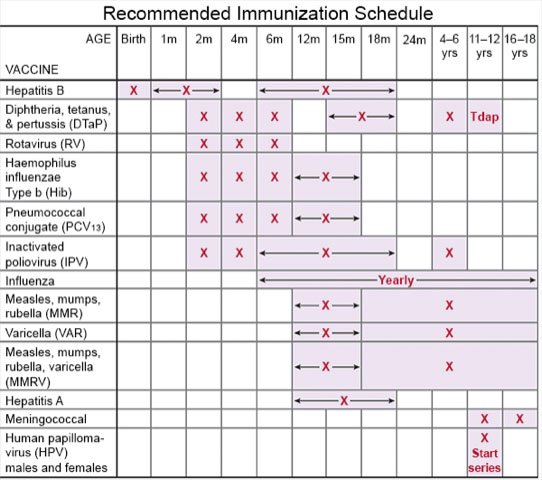Cystic Fibrosis in Children
Medically reviewed by Drugs.com. Last updated on Aug 4, 2025.
Cystic fibrosis (CF) is a lifelong condition that affects your child's lungs, digestive system, and other organs. Mucus, tears, sweat, and saliva become so thick and sticky that they clog the lungs and digestive system. CF typically causes problems with breathing and with breaking down and absorbing food.
DISCHARGE INSTRUCTIONS:
Call your local emergency number (911 in the US) if:
- Your child coughs up blood.
- Your child has trouble breathing.
Return to the emergency department if:
- Your child's lips or fingernails turn blue or white.
- Your child has severe abdominal pain.
Call your child's doctor if:
- Your child has a fever.
- Your child has chills or feels weak or achy.
- Your child has trouble sleeping.
- Your child urinates less, has a dry mouth or cracked lips, or feels dizzy.
- You have questions or concerns about your child's condition or care.
Related medications
Treatment options
The following list of medications are related to or used in the treatment of this condition.
Medicines:
Your child may need any of the following:
- Antibiotics help fight or prevent an infection caused by bacteria.
- Mucus-thinning medicine is medicine your child breathes in to help thin the mucus in his or her lungs so he or she can cough it up more easily.
- NSAIDs , such as ibuprofen, help decrease swelling, pain, and fever. This medicine is available with or without a doctor's order. NSAIDs can cause stomach bleeding or kidney problems in certain people. If your child takes blood thinner medicine, always ask if NSAIDs are safe for him or her. Always read the medicine label and follow directions. Do not give these medicines to children younger than 6 months without direction from a healthcare provider.
- Steroid medicine helps decrease inflammation.
- Bronchodilators help open the air passages in your child's lungs, and helps him or her breathe more easily.
- Pancreatic enzymes help your child's digestive system break down food and absorb nutrients properly.
- Cystic fibrosis transmembrane regulators (CFTR) may help improve your child's symptoms if the CF is caused by a certain protein mutation. Your child's healthcare provider or CF specialist can give you more information about CFTRs.
- Do not give aspirin to children younger than 18 years. Your child could develop Reye syndrome if he or she has the flu or a fever and takes aspirin. Reye syndrome can cause life-threatening brain and liver damage. Check your child's medicine labels for aspirin or salicylates.
- Give your child's medicine as directed. Contact your child's healthcare provider if you think the medicine is not working as expected. Tell the provider if your child is allergic to any medicine. Keep a current list of the medicines, vitamins, and herbs your child takes. Include the amounts, and when, how, and why they are taken. Bring the list or the medicines in their containers to follow-up visits. Carry your child's medicine list with you in case of an emergency.
Extra oxygen
may be needed if your child's blood oxygen level is lower than it should be. He or she may get oxygen through a mask placed over the nose and mouth or through small tubes placed in the nostrils.
Help your child breathe more easily:
- Have your child do airway clearance exercises to help remove mucus. Your child's healthcare provider will show him or her how to do the exercises. These exercises may be used with machines or devices to decrease your child's symptoms and risk for infection.
- Elevate your child's head when he or she sleeps. Your child may have trouble breathing when he or she lies flat. Use pillows or foam wedges to elevate his or her head. Do not use pillows with a baby.

- Use a cool mist humidifier to increase air moisture in your home. This may make it easier for your child to breathe and to cough up mucus.
- Have your child be physically active, as directed. Ask your child's healthcare provider about the best physical activity plan for your child. Physical activity can help loosen secretions in your child's airways and lungs.

- Do not smoke around your child. Nicotine and other chemicals in cigarettes and cigars can cause lung damage. Ask your healthcare provider for information if you currently smoke and need help to quit. E-cigarettes or smokeless tobacco still contain nicotine. Talk to your healthcare provider before you use these products.
Help your child stay healthy:
- Ask about vaccines your child may need. Take your child to get a flu vaccine as soon as recommended each year, usually in September or October. Your child should also get a COVID-19 vaccine and recommended boosters. Ask if your child needs other vaccines, and when to get them.

- Prevent the spread of germs. Cover your child's mouth when he or she coughs. Teach him or her to cough into a tissue or the bend of his or her elbow.
- Wash your hands and your child's hands often. Use soap and water. Carry germ-killing gel with you when soap and water are not available. Teach your child to avoid touching his or her eyes, nose, or mouth unless he or she has washed his or her hands first.

- Give your child a variety of healthy foods. Healthy foods include fruits, vegetables, whole-grain breads, low-fat dairy products, beans, lean meats, and fish. Your child may need to eat foods that have extra calories, fat, vitamins, or calcium. Ask your child's healthcare provider if your child needs to be on a special diet.

Follow up with your child's doctor or CF specialist in 2 to 4 weeks, or as directed:
Your child will need to return regularly to have his or her condition monitored. Write down your questions so you remember to ask them during your visits.
© Copyright Merative 2025 Information is for End User's use only and may not be sold, redistributed or otherwise used for commercial purposes.
The above information is an educational aid only. It is not intended as medical advice for individual conditions or treatments. Talk to your doctor, nurse or pharmacist before following any medical regimen to see if it is safe and effective for you.
Learn more about Cystic Fibrosis
Treatment options
Care guides
Symptoms and treatments
Further information
Always consult your healthcare provider to ensure the information displayed on this page applies to your personal circumstances.
